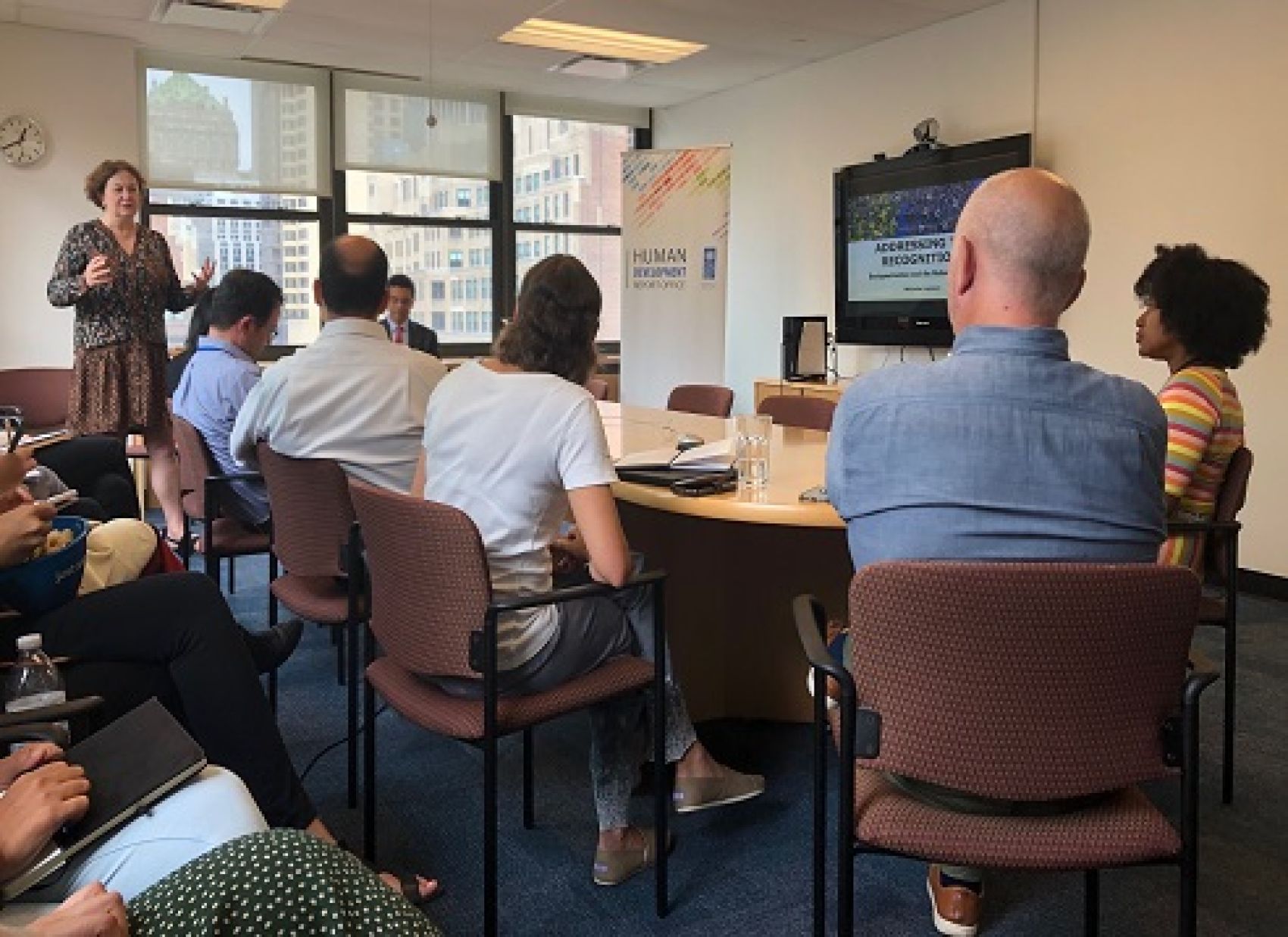On 16 September, the Human Development Report Office invited Michèle Lamont, Professor of Sociology and African and African American Studies and Robert I. Goldman Professor of European Studies at Harvard University, for an enriching discussion on addressing inequalities in recognition and self-worth.
Prof. Lamont’s presentation drew attention to ‘recognition gaps’, defined as disparities in worth and cultural membership between groups in a society, as well as destigmatization, the process by which low-status groups overcome the recognition gaps.
She noted that contemporary sociologists have tended to focus on inequality in the distribution of occupation, education and wealth, emphasizing that recognition gaps are just as crucial to understanding inequality as these traditional criteria.
Prof. Lamont also highlighted that neoliberalism – with its emphasis on the importance of self-reliance – could, in fact, lead to a loss of dignity for those groups who are sometimes perceived as lacking responsibilities for themselves.
Drawing on research on stigmatized groups in the US, Brazil and Israel, she explained that experiences of stigma and destigmatization are enabled and constrained by various contextual factors such as geography and porousness of group boundaries, and offered proposals for contributing to the reduction of recognition gaps.
She concluded her presentation with a recommendation that policymakers should promote and adopt inclusive laws and embrace ideas such as multiculturalism.


